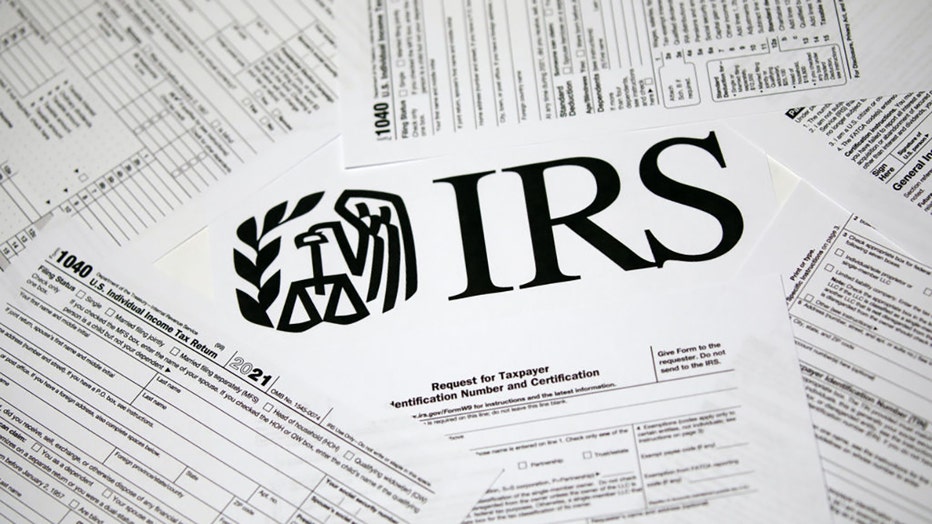When will the IRS start accepting tax returns in 2024? When you can file, other things to know
WASHINGTON - The tax season officially begins on Jan. 29, 2024, marking the first day that the IRS will begin accepting and processing 2023 tax returns.
The agency announced the start date for filing season in an announcement this week, saying it expects more than 128.7 million individual tax returns to be filed by the April 15 deadline.
Most taxpayers need to file their personal federal tax return, pay any tax owed, or request an extension by that deadline in order to avoid penalties and interest. However, the IRS encourages taxpayers to start gathering all the correct information needed and start the process sooner.
There are some other changes, too, including programs to help Americans file and changes to income tax brackets. Here’s what you need to know heading into tax season:
IRS to test ‘Direct File’ platform in 13 US states
This year, the IRS is testing a platform that would allow more Americans to file their taxes online for free, saving people money on tax-preparation services used each year.
The idea of a government-operated, electronic free-file tax return system has been debated for years – with advocates noting how it could better serve taxpayers, and critics skeptical about the IRS taking on dual roles of both the tax collector and preparer.
The IRS’ pilot program, called "Direct File," is being launched in 13 U.S. states for filing season 2024, the agency said.
Four states, Arizona, California, Massachusetts and New York, are working with the IRS to integrate their state taxes into the pilot program. Taxpayers in nine other states without an income tax – Alaska, Florida, New Hampshire, Nevada, South Dakota, Tennessee, Texas, Washington and Wyoming – are also taking part.
IRS ‘Free File’ opens on Jan. 12 – here’s who qualifies
While the IRS tests its own tax-filing system in some U.S. states, there are other free tax filing options available through the agency – including IRS Free File.
IRS Free File is a partnership between the agency and some commercial tax preparation companies, known as the Free File Alliance.
It was initially implemented in 2006 as an agreement that prevented the IRS from creating its own free tax return filing system. In exchange, tax preparation companies agreed to provide free services to taxpayers making $73,000 or less.
The provision that barred the IRS from exploring a free-file system expired in 2019, hence the "Direct File" pilot program this year, but the Free File Alliance agreement to provide free services for low-income taxpayers remains in effect.
In 2024, IRS Free File opens on Jan. 12, when participating software companies will accept completed tax returns and hold them until they can be filed electronically with the IRS.
Beginning on Jan. 29, Free File Fillable Forms is also available at no cost to any income level and provides electronic forms that people can fill out and e-file themselves at no cost.

FILE - Internal Revenue Service 1040 Individual income tax forms for 2021 arranged in Louisville, Kentucky, on April 12, 2022. Photographer: Luke Sharrett/Bloomberg via Getty Images
When you can expect your tax refund in 2024
There are various factors that can affect the timing of a refund after the IRS receives your tax return.
The agency said most refunds are issued in less than 21 days. However, it cautions taxpayers not to rely on receiving a refund by a certain date – particularly when making major purchases or paying bills.
"Some returns may require additional review and may take longer," the IRS said.
Taxpayers can check a refund's status by using the Where's My Refund? Tool online.
The agency added that it cannot issue Earned Income Tax Credit (EITC) and Additional Child Tax Credit (ACTC) refunds before mid-February, as part of the federal Protecting Americans from Tax Hikes (PATH) Act.
"The IRS expects most EITC/ACTC related refunds to be available in taxpayer bank accounts or on debit cards by February 27 if they chose direct deposit and there are no other issues with their tax return," the agency said.
New IRS tax brackets take effect, meaning paycheck could be bigger in 2024
Meanwhile, higher federal income tax brackets and standard deductions took effect at the beginning of January, potentially giving Americans a chance to increase their take-home pay in 2024 and shield more of their income from the IRS.
The IRS announced the higher limits for the federal income tax bracket and standard deductions in November. The increase is intended to avoid a phenomenon known as "bracket creep," which happens when taxpayers are pushed into higher-income brackets even though their purchasing power is essentially unchanged due to steeper prices for most goods.
The IRS makes such adjustments annually, but in times of high inflation, the increases are more significant and impactful for taxpayers. Although inflation has fallen considerably over the past year, it remains higher than both the pre-pandemic average and the Federal Reserve's 2% target.
This year, the tax brackets are shifting higher by about 5.4%.
The higher thresholds where tax rates take effect could mean savings for millions of Americans across all income brackets.
Click here to read the changes unveiled by the IRS. The inflation-adjusted elements will apply to the 2024 tax year, meaning returns filed in 2025.
This story was reported from Cincinnati. FOX Business contributed.

